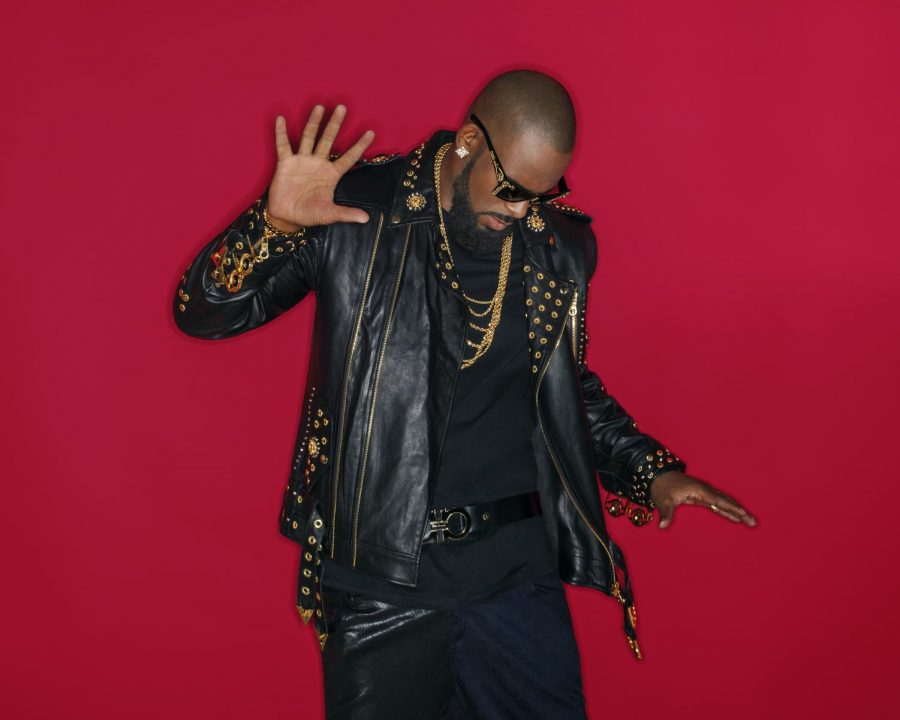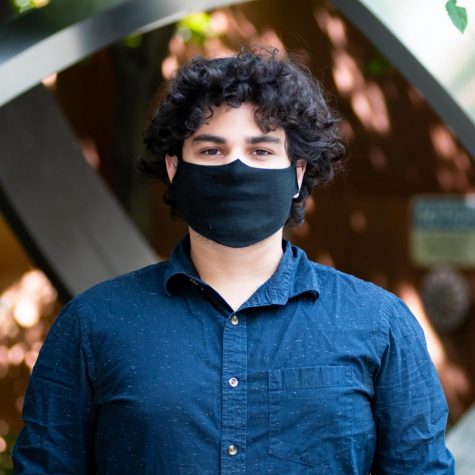Should We Ignore the Mess Behind the Music?
Musician R. Kelly is the subject of recent controversies surrounding his sexual misconduct allegations
October 4, 2018
There’s a certain dread that comes with seeing the name of a famous musician trending on social media. As the private lives and personal views of these artists become more transparent, the public has begun to further scrutinize their comments and actions. They don’t always like what they find. Allegations of abuse and misconduct, inflammatory political statements, cases of targeted harassment and more now permeate the public image of various popular artists. Political awareness has sparked discussion over the ethics of listening to and supporting controversial artists, which issues cross the fine line and whether art can truly be separated from its creator.
“I feel like it’s on a case-by-case basis the majority of the time,” Tisch senior Mikayla Forrester said. “The deal-break is if I find out an artist supported Trump. Then I’m just like, ‘Exit. Nope. That’s not it.’ But yeah, I feel like it depends on what they do.”
Though some listeners may not condone the comments and actions of various artists, they believe that personal growth and change is an important factor in deciding whether a musician is worthy of forgiveness.
“If it comes up and they apologize about it and they’re like, ‘You know, it was a different time,’ OK,” Stern senior Brianna Alexander said. “If they’re saying the same thing again, […] then it’s problematic.”
Alexander discussed the example of rapper Chris Brown, who was convicted in 2009 of domestic abuse of then-girlfriend and famous musician Rihanna.
“Everyone always asks if you can separate him from his music because granted, the whole situation,” Alexander said. “But I feel like he got to a point where even Rihanna forgave him, so who am I to hold him accountable?”
Comments by musicians through their personal accounts on popular social media platforms like Twitter have also been subject to scrutiny. One recent example is that of R&B singer-songwriter Sabrina Claudio, when a fan discovered a now-defunct Twitter account from her teenage years. The account contained numerous tweets criticizing and insulting black women. Despite several public apologies from Claudio since the discovery of the account, her fanbase has been split between denouncing the artist and forgiving her on the premise that she has matured since the comments were made.
“I don’t believe it should count when celebrities tweet something over 10 to 20 years ago,” Alexander said. “Depending on what it is, I don’t feel like you can hold them accountable. I feel like you have to separate the artist from the tweets at that point, or from the message, because, 10 years ago, everyone was a little different.”
Some music listeners believe that certain topics of controversy, such as racist comments, simply cannot be forgiven.
“If you’re racist, you’re racist throughout your entire life,” Forrester said.
Others simply don’t see any correlation between listening to an artist’s music and supporting their values. Liberal Studies sophomore Daniel Sarmiento said that famous musician Kanye West’s recent political controversies did not change his or his friends’ appreciation of the artist’s music.
“We just appreciate his music,” Sarmiento said. “Yeah, the guy’s a very radical figure when it comes to social media and all that, [but] Kanye’s a good artist. I like his music. It doesn’t affect my listening to his music.”
Regardless of where they come down on the ethics of listening to certain artists, most agree that the decision to support an artist should be up to the individual.
“If there’s something that a specific artist is promoting that I don’t like, and it’s to that point, I’m probably not going to listen,” Forrester said. “But I don’t want anyone else to tell me that I can’t listen. That’s what I mean, I have to make that decision myself.”
Several music streaming services such as Spotify and Apple Music have taken matters into their own hands. Spotify created waves in the streaming community last May after the service implemented a “public hate content and hateful conduct” policy and removed controversial artists like R. Kelly and XXXTentacion, who have respectively been accused of running an abusive cult and domestic abuse, from its custom playlists. Many Spotify users criticized the decision, arguing that the company was forcing its own ethical values on its user base. However, Spotify was quick to defend its choice.
“We don’t censor content because of an artist’s or creator’s behavior, but we want our editorial decisions — what we choose to program — to reflect our values,” Spotify said in a statement. “When an artist or creator does something that is especially harmful or hateful, it may affect the ways we work with or support that artist or creator.”
Following the subsequent abandonment of the policy and XXXTentacion’s death, the service once again promoted the artist’s music on their custom playlists. This decision prompted criticism from those who backed Spotify’s original policy, who argued that by letting controversial figures such as XXXTentacion and 6ix9ine headline custom playlists, the service was supporting known abusers.
“I don’t feel like companies should be able to inflate where an artist is to give them more attention or anything like that,” Alexander said. “You have to let people form their own opinion. You’re taking account of half your audience and not the other half, and that’s why I feel like companies should stay out of it and just let consumers do what they want to do with the music.”
Though the ethical debate on listening to controversial figures rages on without a definite answer, music listeners stress the importance of reflecting upon an individual’s own moral code to make decisions on which artists to listen to.
“It really depends on you and what you’re passionate for,” Alexander said. “Like, where you, yourself, draw the line. That’s what it depends on.”
Email Ethan Zack at [email protected].




























































































































































